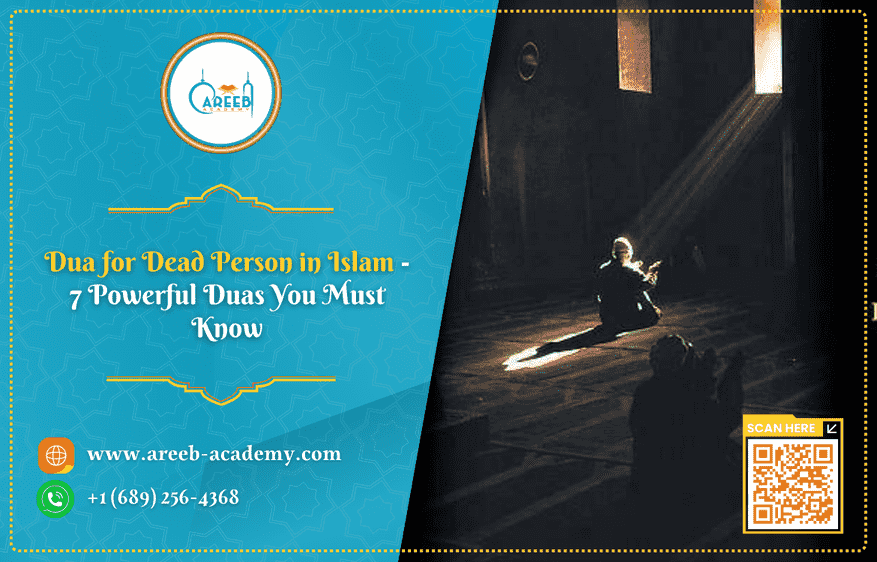
Dua for Dead Person in Islam is an important practice that allows Muslims to pray for the forgiveness, mercy, and guidance of those who have passed away. Making dua for the deceased is not only a way to seek Allah’s blessings for them in the afterlife, but it also reflects the ongoing love and spiritual connection between the living and their departed loved ones. In Islam, these supplications can ease the hardships of the grave, elevate the deceased’s rank in Paradise, and act as a form of continuous charity that benefits them long after their worldly life has ended.
Importance of Making Dua for the Dead in Islam
Making Dua for Dead Person in Islam is a deeply rooted act of compassion and faith. It reflects a believer’s understanding that death does not sever the bond between hearts, nor does it end the impact we can have on one another. Through sincere supplication, the living continue to support the deceased on their journey in the Hereafter—seeking mercy, forgiveness, and ease for them from Allah. This practice strengthens one’s awareness of the temporary nature of life and encourages a mindset of empathy, gratitude, and remembrance. Ultimately, making dua for dead person in Islam is both a spiritual duty and a powerful expression of love, loyalty, and hope in Allah’s infinite mercy.
The Ongoing Benefit of a Believer’s Dua for a Dead Person in Islam
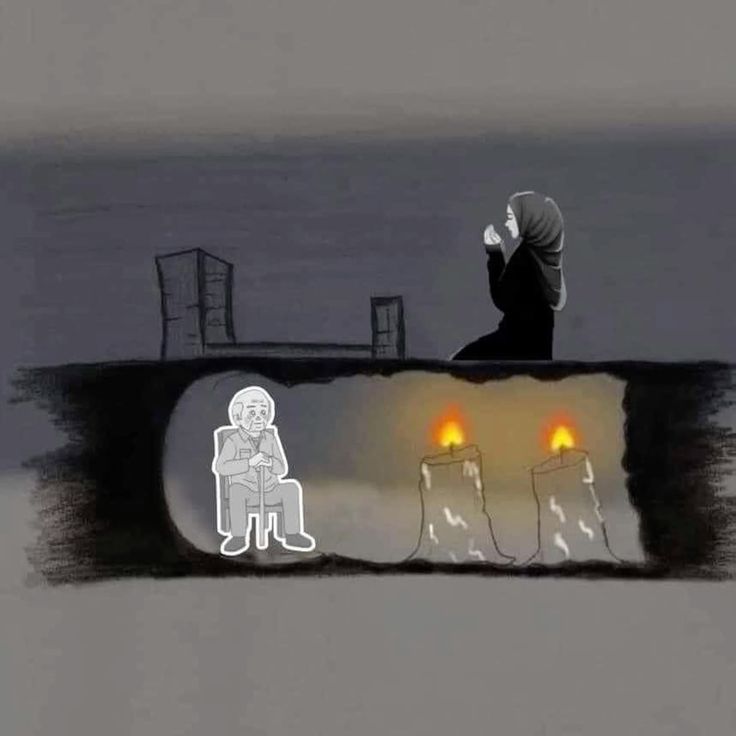
In Islam, making dua for a dead person is one of the greatest gifts the living can offer. The Prophet ﷺ said:
«إِذَا مَاتَ اَلْإِنْسَانُ انْقَطَعَ عَنْهُ عَمَلُهُ إِلَّا مِنْ ثَلَاثٍ: صَدَقَةٍ جَارِيَةٍ، أَوْ عِلْمٍ يُنْتَفَعُ بِهِ، أَوْ وَلَدٍ صَالِحٍ يَدْعُو لَهُ»
[Muslim]
Translation: “When a person dies, all their deeds come to an end except for three: ongoing charity, beneficial knowledge, or a righteous child who prays for them.”
This hadith emphasizes the unique importance of dua: even after death, a believer’s supplication can reach the deceased as mercy and light in their grave. It also strengthens the spiritual bond between the living and the dead, reminding us of the temporary nature of life.
A believer’s sincere dua can ease the deceased’s hardships, expand their grave, and elevate their rank in Paradise. This continuous benefit brings comfort to the family, knowing that their prayers and acts of remembrance can still support and uplift their loved one, even after their worldly deeds have ended.
Quranic and Hadith Evidence for Making Dua for the Deceased
The practice of making dua for the dead is firmly rooted in the Quran and Sunnah. Allah praises the believers who say:
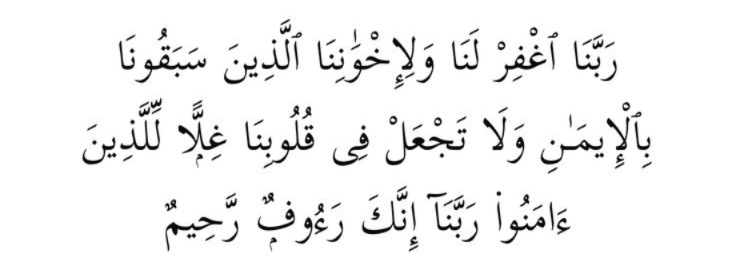
“Our Lord, forgive us and our brothers who preceded us in faith.” (Surah Al-Hashr – 59:10)
This verse shows the importance of praying for those who have passed away.
The Prophet ﷺ frequently prayed for deceased companions and encouraged Muslims to seek forgiveness and mercy for their dead. In another narration, the Prophet ﷺ emphasized that a Muslim’s dua for their brother in their absence is answered, and an angel responds, “Ameen, and for you the same.” If this applies to any believer, it certainly applies even more to someone we loved and lost.
These evidences reflect the strong Islamic basis for continuing to pray for the deceased and asking Allah to shower them with forgiveness and mercy.
You can read more about Sunnah acts here
How Dua for Dead Person in Islam Brings Peace to the Living and the Departed
Dua benefits not only the deceased but also the one who prays. For the living, making dua for dead person in Islam creates a sense of spiritual connection that eases grief, soothes the heart, and brings emotional comfort. It helps the believer feel that they are still offering something meaningful to the person they miss.
For the deceased, the dua reaches them as mercy, light, and relief from hardship. In fact, it may open doors of forgiveness, raise their status in the Hereafter, and even bring them peace in their grave. Similarly, this mutual comfort—peace for the dead and healing for the living—demonstrates how dua strengthens the bond between hearts, even after death. Moreover, it reminds Muslims that love, mercy, and prayers continue beyond this world, thus encouraging ongoing remembrance and spiritual connection.
Most Common Dua for Dead Person in Islam
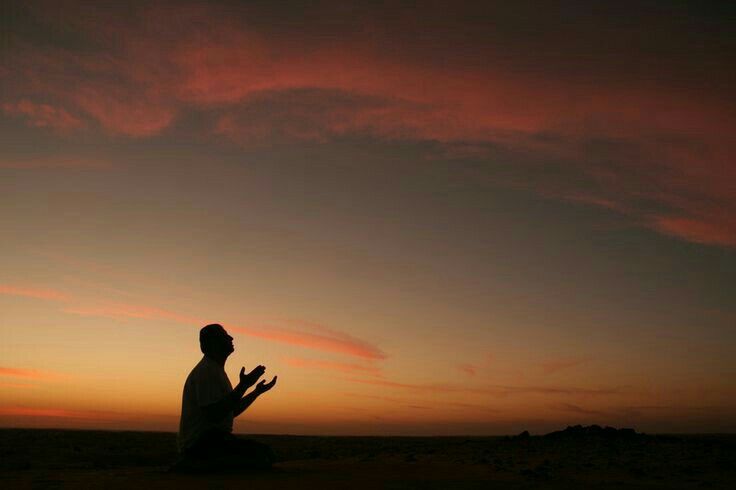
The Prophet’s Dua for the Deceased
اللَّهُمَّ اغْفِرْ لَهُ وَارْحَمْهُ، وَعَافِهِ وَاعْفُ عَنْهُ، وَأَكْرِمْ نُزُلَهُ، وَوَسِّعْ مُدْخَلَهُ، وَاغْسِلْهُ بِالْمَاءِ وَالثَّلْجِ وَالْبَرَدِ، وَنَقِّهِ مِنَ الْخَطَايَا كَمَا يُنَقَّى الثَّوْبُ الْأَبْيَضُ مِنَ الدَّنَسِ، وَأَبْدِلْهُ دَارًا خَيْرًا مِنْ دَارِهِ، وَأَهْلًا خَيْرًا مِنْ أَهْلِهِ، وَزَوْجًا خَيْرًا مِنْ زَوْجِهِ، وَأَدْخِلْهُ الْجَنَّةَ، وَأَعِذْهُ مِنْ عَذَابِ الْقَبْرِ وَعَذَابِ النَّارِ.
Transliteration:
Allahumma ighfir lahu warḥamhu, wa ‘āfihi wa‘fu ‘anhu, wa akrim nuzulahu, wa wassi‘ mudkhalahu, waghsilhu bil-mā’i wath-thalji wal-barad, wa naqqihi mina al-khaṭāyā kamā yunaqqā ath-thawb al-abyaḍ mina-d-danas, wa abdilhu dāran khayran min dārihi, wa ahlan khayran min ahlihi, wa zawjan khayran min zawjihi, wa adkhilhu al-jannah, wa a‘idhhu min ‘adhābi al-qabri wa ‘adhābi an-nār.
English Translation:
“O Allah, forgive him, have mercy on him, grant him ease and pardon him. Honor his place of rest and expand his entrance. Wash him with water, snow, and hail, and purify him of sins as a white garment is purified of dirt. Replace his home with a better home, his family with a better family, and a spouse with a better spouse. Admit him into Paradise and protect him from the punishment of the grave and of the Fire.”
Short Duas for Forgiveness and Mercy for a Deceased Person
اللَّهُمَّ اغْفِرْ لَهُ وَارْحَمْهُ.
Transliteration:
Allahumma ighfir lahu warḥamhu.
English Translation:
“O Allah, forgive him and have mercy on him.”
Dua for Parents Who Have Passed Away
رَبِّ اغْفِرْ لِي وَلِوَالِدَيَّ وَارْحَمْهُمَا كَمَا رَبَّيَانِي صَغِيرًا.
Transliteration:
Rabbi ighfir li wa li-wālidayya warḥamhumā kamā rabbayānī ṣaghīrā.
English Translation:
“My Lord, forgive me and my parents, and have mercy on them as they raised me when I was small.”
Dua for All Believers Who Died Before Us
رَبَّنَا اغْفِرْ لَنَا وَلِإِخْوَانِنَا الَّذِينَ سَبَقُونَا بِالْإِيمَانِ، وَلَا تَجْعَلْ فِي قُلُوبِنَا غِلًّا لِلَّذِينَ آمَنُوا، رَبَّنَا إِنَّكَ رَءُوفٌ رَحِيمٌ.
Transliteration:
Rabbana ighfir lana wa li-ikhwāninā alladhīna sabaqūnā bil-īmān, wa lā taj‘al fī qulūbinā ghillan lilladhīna āmanū. Rabbana innaka Ra’ūfun Raḥīm.
English Translation:
“Our Lord, forgive us and our brothers who preceded us in faith, and do not place in our hearts any resentment toward those who believe. Our Lord, indeed You are Kind and Merciful.”
Authentic Duas from the Quran and Hadith for a Dead Person in Islam
Dua for a Spacious and Illuminated Grave
اللَّهُمَّ اجْعَلْ قَبْرَهُ/قَبْرَهَا رَوْضَةً مِنْ رِيَاضِ الْجَنَّةِ، وَاجْعَلْهُ وَاسِعًا مُنِيرًا، وَثَبِّتْهُ/ثَبِّتْهَا عِنْدَ السُّؤَالِ.
Transliteration:
Allahumma ij‘al qabrahu/qabrahā rawḍatan min riyāḍ al-jannah, waj‘alhu wāsi‘an munīran, wa thabbit’hu/thabbit’hā ‘inda as-su’āl.
English Translation:
“O Allah, make his/her grave a garden from the gardens of Paradise, make it spacious and filled with light, and grant him/her firmness when questioned.”
Note:
The Prophet ﷺ taught that the grave is either a garden from Paradise or a pit from Hellfire. Making dua for light and expansiveness brings immense relief to the deceased, as narrated in many hadiths about the questioning in the grave.
اللَّهُمَّ أَبْدِلْهُ/أَبْدِلْهَا دَارًا خَيْرًا مِنْ دَارِهِ/دَارِهَا، وَأَهْلًا خَيْرًا مِنْ أَهْلِهِ/أَهْلِهَا، وَأَدْخِلْهُ/أَدْخِلْهَا الْجَنَّةَ.
Transliteration:
Allahumma abdilhu/abdilhā dāran khayran min dārihi/dārihā, wa ahlan khayran min ahlihi/ahlihā, wa adkhilhu/adkhilhā al-jannah.
English Translation:
“O Allah, replace his/her home with a better home, his/her family with a better family, and admit him/her into Paradise.”
Note:
This dua is taken from a lengthy authentic supplication the Prophet ﷺ used when praying Janazah. It reflects complete hope in Allah—that the believer’s next life will be far better and more peaceful than the one they left behind.
When and How to Say Dua for Dead Person in Islam
Immediately After Death
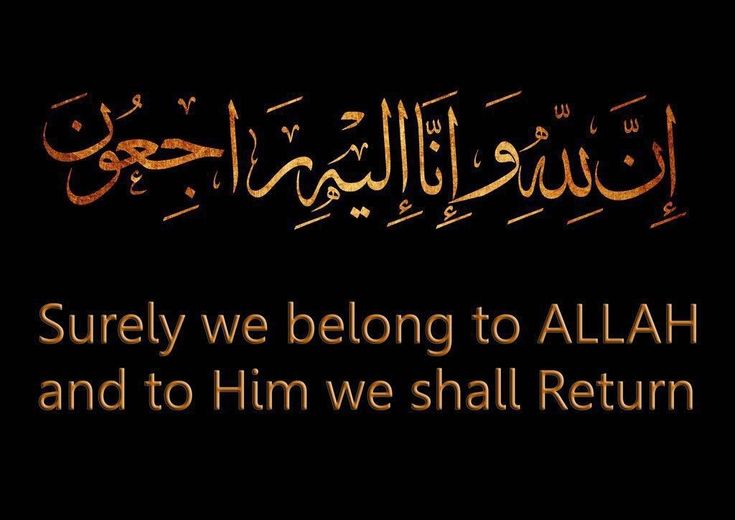
When a Muslim first hears the news of someone’s passing, the Sunnah is to begin with the Quranic reminder:
ٱلَّذِينَ إِذَآ أَصَـٰبَتْهُم مُّصِيبَةٌۭ قَالُوٓا۟ إِنَّا لِلَّهِ وَإِنَّآ إِلَيْهِ رَٰجِعُونَ ١٥٦
Transliteration:
Innā lillāhi wa innā ilayhi rāji‘ūn.
English Translation:
“who say, when struck by a disaster, “Surely to Allah we belong and to Him we will ˹all˺ return.” (ٍSurah Al-Baqarah 2:156)
This phrase is not only a dua but a reminder of our return to Allah and the temporary nature of this world.
Dua when closing the eyes of the deceased
The Prophet ﷺ recited a powerful dua when Abu Salama passed away, after gently closing his eyes:
اللَّهُمَّ اغْفِرْ لَهُ وَارْفَعْ دَرَجَتَهُ فِي الْمَهْدِيِّينَ، وَاخْلُفْهُ فِي عَقِبِهِ فِي الْغَابِرِينَ، وَاغْفِرْ لَنَا وَلَهُ يَا رَبَّ الْعَالَمِينَ، وَافْسَحْ لَهُ فِي قَبْرِهِ وَنَوِّرْ لَهُ فِيهِ
=Allahummaghfir lahu warfa‘ darajatahu fil-mahdiyyīn, wakhlufhu fī ‘aqibihi fil-ghābirīn, waghfir lanā walahu yā Rabbal-‘ālamīn, wafsaḥ lahu fī qabrihi wa nawwir lahu fīh.
English Translation:
“O Allah, forgive him, raise his rank among the rightly guided, take care of those he leaves behind, forgive us and him, and make his grave spacious and filled with light.”
This moment is one of mercy and dignity—reminding the family to make only good supplications, as the angels say Ameen to every word.
During Funeral (Salat al-Janazah)
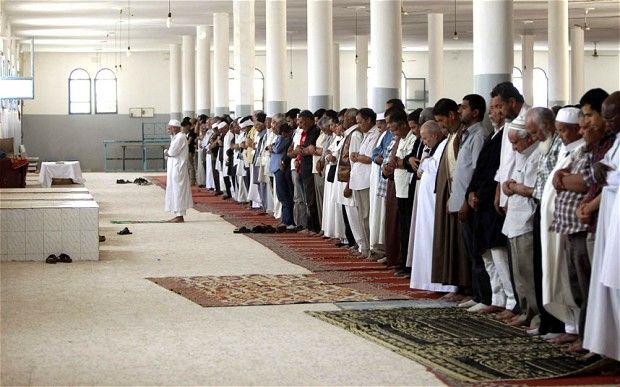
The funeral prayer is one of the most important moments to make dua for dead person in Islam. Importantly, its purpose is pure supplication—there is no bowing or prostration. Furthermore, the Prophet ﷺ described it as a mercy granted for the believer, thus highlighting its unique spiritual significance.
Most well-known Janazah dua
اللَّهُمَّ اغْفِرْ لَهُ وَارْحَمْهُ، وَعَافِهِ وَاعْفُ عَنْهُ، وَأَكْرِمْ نُزُلَهُ، وَوَسِّعْ مُدْخَلَهُ، وَاغْسِلْهُ بِالْمَاءِ وَالثَّلْجِ وَالْبَرَدِ، وَنَقِّهِ مِنَ الْخَطَايَا كَمَا نَقَّيْتَ الثَّوْبَ الْأَبْيَضَ مِنَ الدَّنَسِ…
Transliteration:
Allahummaghfir lahu warhamhu, wa ‘āfihi wa‘fu ‘anhu, wa akrim nuzulahu, wa wassi‘ mudkhalahu, wagh’silhu bil-mā’i wath-thalji wal-barad, wa naqqihi mina al-khaṭāyā kamā naqqaytath-thawba al-abyaḍa minad-danas…
English Translation:
“O Allah, forgive him, have mercy on him, pardon him, honor his place of rest, and expand his entrance. Wash him with water, snow, and hail and cleanse him of sins as a white garment is cleansed from dirt…”
Another powerful dua from the Sunnah during Janazah
اللَّهُمَّ عَبْدُكَ وَابْنُ أَمَتِكَ احْتَاجَ إِلَى رَحْمَتِكَ…
Transliteration:
Allahumma ‘abduka wabnu amatika iḥtāja ilā raḥmatik…
English Translation:
“O Allah, Your servant and the child of Your maidservant is in need of Your mercy…”
These prayers highlight that Janazah is not a ritual formality—it is a focused, heartfelt plea for Allah’s forgiveness and mercy upon the deceased.
After Burial

Once the grave is covered and the people step away, the Sunnah is to stand and make dua for dead person in Islam so that the deceased remains firm during questioning.
The Prophet ﷺ said: “Ask Allah to make him steadfast, for he is now being questioned.”
Dua after burial
اللَّهُمَّ اغْفِرْ لَهُ، اللَّهُمَّ ثَبِّتْهُ
Allahummaghfir lahu, Allahumma thabbithu.
English Translation:
“O Allah, forgive him. O Allah, grant him steadfastness.”
This moment is crucial—the grave is the first stage of the Hereafter, and dua from the living brings immense ease to the soul just beginning its journey.
Continuous Dua in Private Moments
Islam encourages believers to make dua for the deceased at any time, not just during the funeral.
Dua in quiet, private moments carries sincerity and emotional depth.
Examples of suitable ongoing duas
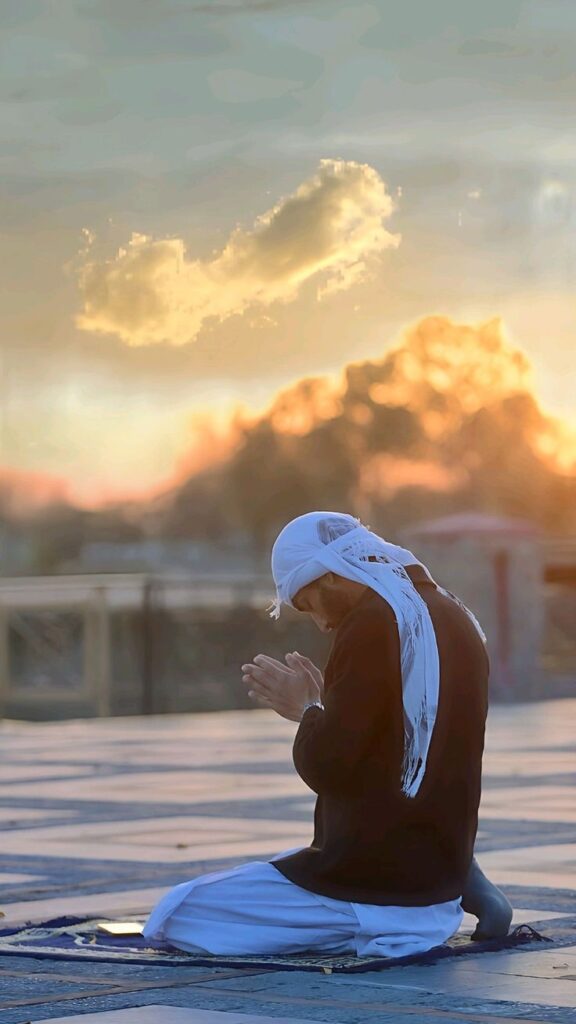
اللَّهُمَّ اجْعَلْ قَبْرَهُ رَوْضَةً مِنْ رِيَاضِ الْجَنَّةِ وَنَوِّرْهُ
Transliteration:
Allahumma ij‘al qabrahu rawḍatan min riyāḍil-jannah wa nawwirhu.
English Translation:
“O Allah, make his grave a garden from the gardens of Paradise and fill it with light.”
اللَّهُمَّ ارْحَمْ مَوْتَانَا وَمَوْتَى الْمُسْلِمِينَ
Transliteration:
Allahummarḥam mawtānā wa mawtā al-muslimīn.
English Translation:
“O Allah, have mercy on our dead and the dead among the Muslims.”
These quiet supplications—made between prayers, at night, or whenever one remembers the departed—are acts of ongoing charity that continue benefiting the deceased long after they leave this world.
Acts That Benefit the Dead Besides Dua
Giving Charity (Sadaqah Jariyah) on Their Behalf
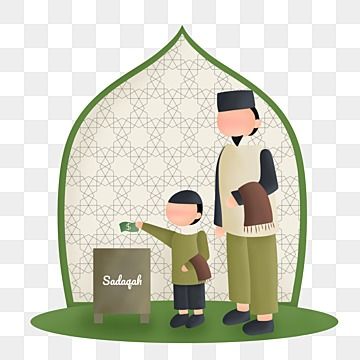
Giving charity on behalf of the deceased is one of the most impactful ways to benefit them after their death. The Prophet ﷺ confirmed that Sadaqah reaches the deceased. Making dua for dead person in Islam, along with acts like charity, increases their rewards even after their deeds have stopped. This includes ongoing charity (Sadaqah Jariyah), such as sponsoring wells, Quran copies, schools, medical aid, or supporting a mosque. It also includes regular charity given with the intention of benefiting the loved one who has passed.
Sadaqah acts as continuous nourishment for the soul of the deceased, therefore raising their rank, erasing sins, and adding to their record of good deeds. Moreover, it is one of the clearest manifestations of love and loyalty, because the living actively work to increase the rewards of those who can no longer act for themselves. In fact, scholars unanimously agree that charity on behalf of the deceased is valid and reaches them by Allah’s mercy.
Reciting Quran and Seeking Forgiveness for Them
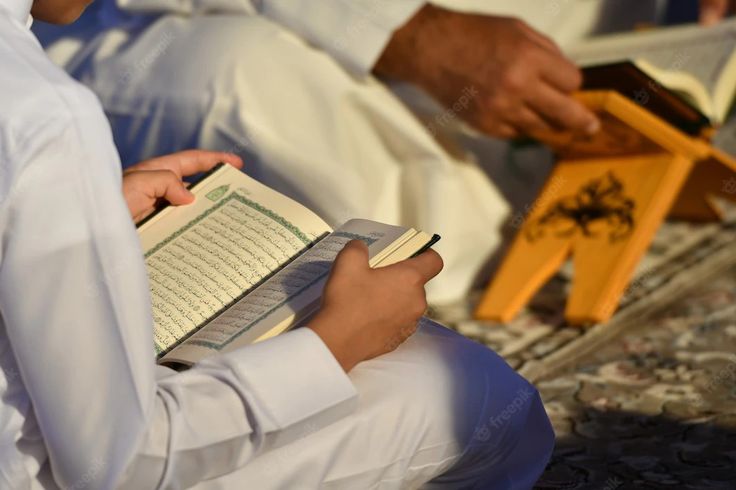
One of the most comforting acts for the deceased is reciting the Quran and asking Allah to forgive them. Scholars have differed on whether the reward of recitation reaches the deceased. However, many reputable schools—including Hanafi, Hanbali, and some Shafi‘i—confirm that it does when the intention is sincere. Additionally, combining Quran recitation with making dua for dead person in Islam increases the mercy and blessings granted to the departed.
Even beyond recitation, there is no disagreement that seeking forgiveness (istighfar) for the deceased is among the most powerful acts. Allah commands believers in Surah Al-Hashr (59:10):
“Our Lord, forgive us and our brothers who preceded us in faith.”
This verse is clear evidence that asking forgiveness for those who died before us is a righteous act that brings mercy to their souls. Reciting Quran, especially Surah Yaseen according to many scholars, brings peace to the deceased and comfort to the living, reminding them of Allah’s promise and the reality of the Hereafter.
Maintaining Family Ties in Their Honor
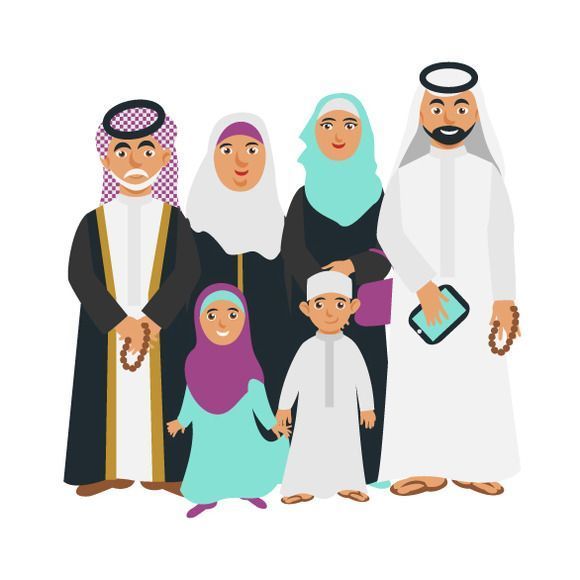
One of the most profound and often forgotten ways to benefit the deceased is maintaining family ties (silat ar-rahim) in their name. The Prophet ﷺ said that honoring one’s parents after their death includes maintaining relationships with those they loved during their lifetime.
This can include:
- visiting their relatives and friends
- offering help or sadaqah to people they cared about
- being kind to their siblings
- continuing acts of goodness they started
These actions strengthen family bonds, spread mercy, and keep the memory of the deceased alive in a righteous, purposeful way. Scholars explain that the reward of such acts reaches the deceased because they were the ones who raised, inspired, or connected the living to these relationships.
Maintaining ties in their honor is a form of loyalty and righteousness that reflects gratitude for the role they played in our lives. It keeps their good legacy alive and becomes a continuous benefit for them in the Hereafter.
What Not to Do When Making Dua
When making dua for a dead person in Islam, it is essential to follow the guidance of the Prophet ﷺ. While supplication is a deeply rewarding act, introducing practices that have no basis in the Quran or authentic Sunnah can unintentionally lead to innovations (bid‘ah). Therefore, understanding what is permissible ensures that your prayers are sincere, accepted, and in accordance with Islamic teachings.
Avoiding Innovations or Unauthentic Practices
When making dua for dead person in Islam, it’s important to stick to what the Prophet ﷺ taught. Adding practices that have no evidence in the Quran or Sunnah can turn a good intention into an innovation (bid’ah).
Avoid:
- Believing that dua must be made only at the grave for it to be accepted.
- Creating specific rituals or gatherings for dua that the Prophet ﷺ never taught.
Islam encourages simplicity and sincerity — not complicated rituals.
Dua Must Be Sincere and Directed Only to Allah
Supplication is an act of worship, and all worship belongs solely to Allah.
Avoid:
- Asking the deceased to make du’a for you or calling upon them for help.
- Seeking blessings, forgiveness, or intercession through the deceased.
This is considered shirk because only Allah hears and responds to prayers.
Do instead:
- Raise your hands and ask Allah alone to forgive the deceased, have mercy on them, and grant them Jannah.
Understanding the Limits of Intercession
Intercession (shafā‘ah) is real in Islam, but it occurs only by Allah’s permission on the Day of Judgment. It is important to understand the limits of intercession when making dua for dead person in Islam.
Avoid:
- Asking a deceased person for intercession.
- Believing that a righteous person can intercede automatically after their death.
Correct belief:
Only Allah grants intercession, and the Prophet ﷺ will intercede by Allah’s permission on the Day of Judgment — not during worldly life and not upon request at a grave.
What to Avoid
- ❌ Do not make du’a for non-Muslims:
Asking forgiveness for a deceased non-Muslim is not permissible. - ❌ Do not ask the deceased for help or du’a:
This includes calling upon them, speaking to them, or believing they can fulfill needs. - ❌ Do not restrict du’a to gravesites:
You can make du’a anywhere — at home, in the masjid, or after prayer. - ❌ Avoid announcing deaths publicly with microphones:
Some scholars consider this unnecessary and an impermissible form of public broadcasting.
What to Do Instead
- ✔️ Make sincere du’a directly to Allah for the deceased’s forgiveness and mercy.
- ✔️ Give charity and gift its reward to the deceased.
- ✔️ Pray for them regularly, especially after obligatory prayers.
- ✔️ Recite Quran — including Surah Al-Mulk, which the Prophet ﷺ said will intercede for its reciter.
- ✔️ Keep their memory alive by doing acts of kindness on their behalf.
Final Thought
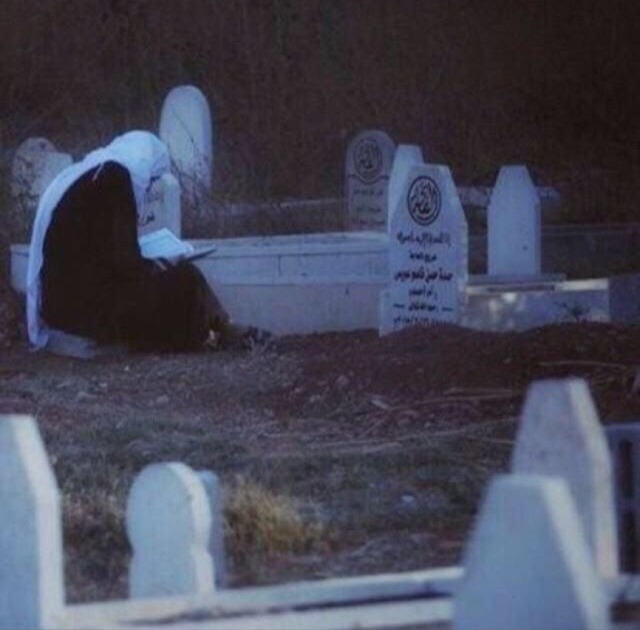
Losing someone we love leaves a space in the heart that nothing in this world can fully replace. Yet, Islam teaches us that our connection with the deceased does not end at death. Every sincere dua you make becomes a gift that reaches them as mercy, light, and relief. And every moment of patience you practice is written for you as reward, raising your own rank and strengthening your heart.
Death reminds us that this life is temporary, and sooner or later, each of us will return to Allah. That reality isn’t meant to frighten us—it is meant to soften our hearts, keep us humble, and guide us toward deeds that matter. So continue making dua for your loved ones, continue giving charity on their behalf, and continue walking your path with patience and hope. Allah is Ever-Merciful, and nothing you do for the sake of the deceased is ever lost.
Learn More with Areeb Academy
If you want to deepen your understanding of duas, hadith, Islamic studies, Quran recitation, or even Arabic (Fusha and Egyptian dialect), Areeb Academy can help you take the next step.
Our teachers are certified, experienced, and patient, and classes are fully flexible to fit your schedule—whether you’re studying for personal growth or teaching your kids.
You can begin your journey with a free trial class to explore our teaching style and connect with your instructor.
Start learning today—your spiritual growth begins with one step.
FAQs About Making Dua Dead Person in Islam
1. Does dua really reach the deceased?
Yes. According to authentic hadith, the dua of a righteous person benefits the deceased and brings them mercy and reward.
2. How often should I make dua for someone who passed away?
You can make dua anytime—after salah, during the night, on Fridays, or whenever your heart remembers them.
3. Can I give charity on behalf of the deceased?
Absolutely. Charity (especially Sadaqah Jariyah) is one of the most powerful ways to benefit them.
4. Is it allowed to recite Quran and gift the reward to the deceased?
Many scholars—including the Hanafi, Hanbali, and some Shafi‘i—affirm that the reward reaches the deceased if the intention is made.
5. Should I visit the grave often?
Visiting graves is Sunnah. It reminds you of the Hereafter and allows you to make dua for the deceased.
6. Is crying when someone dies sinful?
No. Crying from sadness is natural and allowed. What is prohibited is loud wailing or expressions that object to Allah’s decree.


